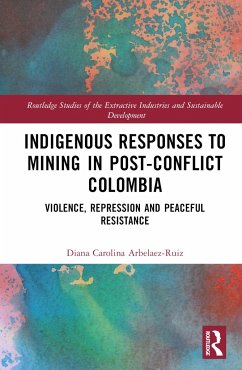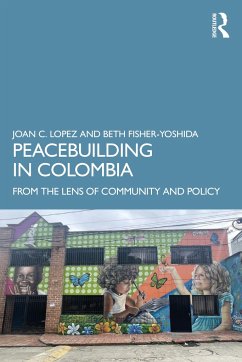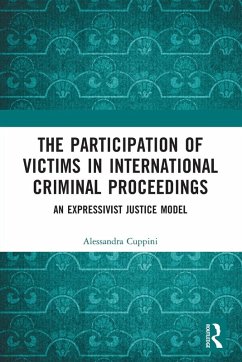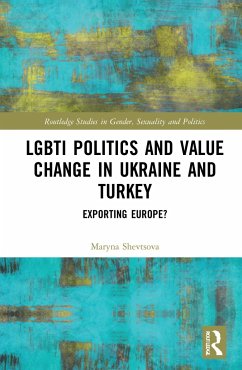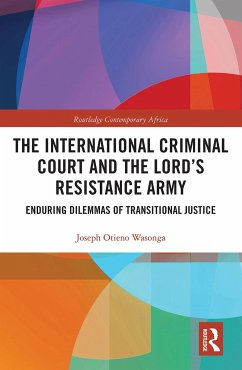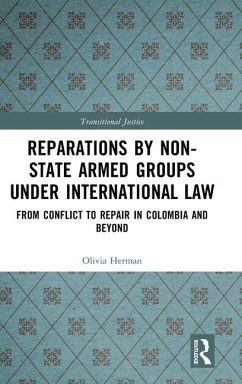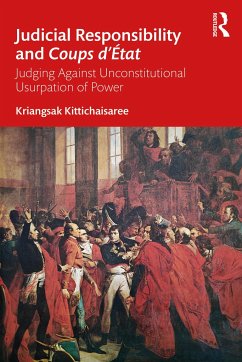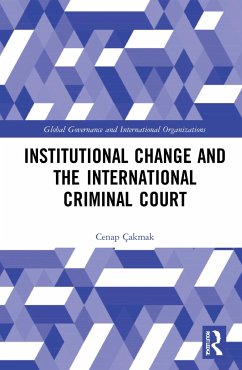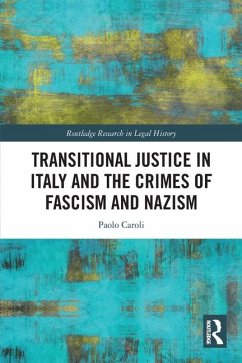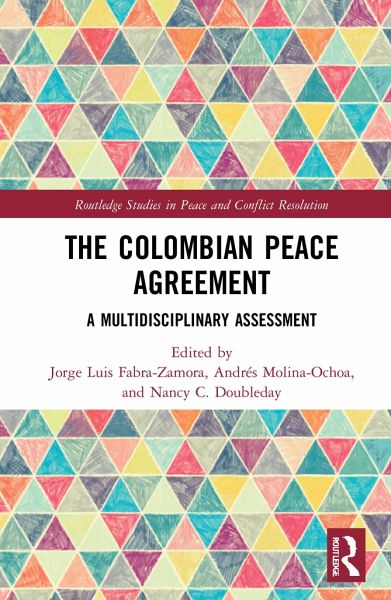
The Colombian Peace Agreement
A Multidisciplinary Assessment
Herausgegeben: Fabra-Zamora, Jorge Luis; Molina-Ochoa, Andrés; Doubleday, Nancy C.

PAYBACK Punkte
77 °P sammeln!
This book is the first systematic, interdisciplinary examination of the peace agreement signed between the Colombian Government and the Revolutionary Armed Forces of Colombia to end one of the largest and most violent conflicts in the Western Hemisphere. It discusses the achievements, failures, and challenges of this innovative peace agreement and its implications for Colombia's future. Contributors include negotiators of the Agreement, judges of the Special Jurisdiction for Peace, representatives of the civil society, and leading academic experts in peace studies, human rights, international ...
This book is the first systematic, interdisciplinary examination of the peace agreement signed between the Colombian Government and the Revolutionary Armed Forces of Colombia to end one of the largest and most violent conflicts in the Western Hemisphere. It discusses the achievements, failures, and challenges of this innovative peace agreement and its implications for Colombia's future. Contributors include negotiators of the Agreement, judges of the Special Jurisdiction for Peace, representatives of the civil society, and leading academic experts in peace studies, human rights, international law, criminal law, transitional justice, political science, and philosophy. Based on the premise that peace is a form of transferable social knowledge, and therefore necessitates transformative social learning, the volume also discusses what other countries can learn from the Colombian experience.
This book will be of much interest to students of peace and conflict studies, transitional justice, Latin American politics, human rights, civil wars and International Relations.
This book will be of much interest to students of peace and conflict studies, transitional justice, Latin American politics, human rights, civil wars and International Relations.




